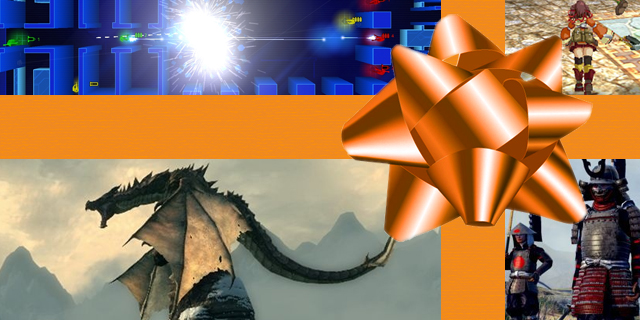
Looking for a good game for yourself or someone else this holiday season? We’ve got you covered. This year’s PC lineup includes some stronger large titles, as well as some plucky indies.
Chantelise: A Tale of Two Sisters: When most professional developers attempt to make a 3D game that uses 2D assets, it usually ends as an unpolished mess that loses its charm quickly and isn’t generally fun to play. EasyGameStation, the developers of the recently-localized Recettear: An Item Shop’s Tale, manages to blend both dimensions splendidly to bring us the world of Chantelise, a love letter to both lovers of 2D sprites and tough action games. (Full review)
Magicka: In the game, you play as a wizard, combining elements and casting spells to get through levels of enemies. You can use the spells to make beams, heal yourself, build barriers and accidentally kill yourself and others. (That last one happens most often.) It’s a matter of trial and error for the most part beyond the basics the tutorial shows off, and that’s by design. “Hey, what does this do” is basically this game’s slogan. (Full review)
Shogun 2: Total War: The year is 1545 and the Ashikaga Shogunate is weak, unable to control the Japanese clans as they have for centuries. It is sengoku jidai, the Warring States period. Every Daimyo, or clan leader, is rising up, clamoring for its chance to succeed the Ashikaga clan as Shogun of Japan. In reality, the Tokugawa clan succeeded in uniting Japan again, but in Shogun 2: Total War, you’ll get the chance to either re-enact history or change its course. (Full review)
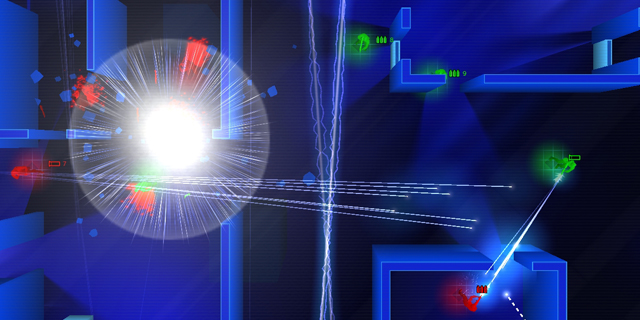
Frozen Synapse: Do you love Chess’s analog nature? Chess by mail? A chessmaster playing 25 people all at once, rotating around tables? What about the board sitting on the living room table that has a move made on it by your opponent only once or twice a day? How about leaving the game for as long as you want, having as much time as you want to ponder a move, or simply being told when it’s your turn while you do something, anything else in between? A game like this would still be competitive, while exacting no demands on your time and done at the pace you want. Such is Frozen Synapse. (Full review)
Might & Magic: Heroes VI: Might & Magic: Heroes VI (with a nomenclature change we’re begrudgingly accepting) is an attempt to bring back the best of the much-celebrated Heroes III, while working off the world and engine of V. You’re still controlling a handful of heroes, moving them around the map, capturing buildings, upgrading cities and amassing large armies. You can zoom in if you’d like, but new developer Black Hole Entertainment knows how the game plays best: from a zoomed-out, top-down perspective that shows the necessary information and omits the rest. Besides that, the game just feels like it used to. (Full review)
Atom Zombie Smasher: Do you like zombies? I like zombies. We seem to like zombies so much that they permeate a lot of modern gaming. Zombies are everywhere, from dedicated games devoted to shooting them to games where they’ve been added just for sake of having zombies. So many of these games play by the same chord, but not Atom Zombie Smasher. Blendo Games’ take on zombies creates a fresh experience of killing zombies while jumping to a different genre. (Full review)
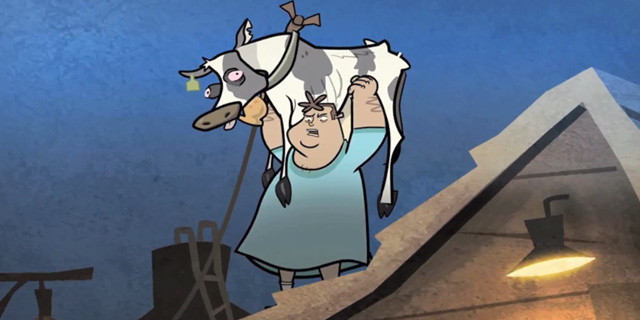
Hector: Badge of Carnage: The titular Detective Inspector Hector is a rude and lewd excuse for a detective. He would rather do the bare minimum to continue drawing a paycheck than put in a long day’s work to get the job done right, and when the town of Clappers Wreake is taken hostage, it falls to Hector to negotiate with them. Since Badge of Carnage is an adventure game, Hector doesn’t negotiate so much as he takes every demand the terrorists make (strange as they are) and fulfills them. Throughout your “negotiations” you will fix up the town clock tower, start up the town’s renovation campaign, and do your best to knock the Clappers Wreake porn industry down a few pegs. (Full review)
Portal 2: As you may have expected, Portal 2 is all about the puzzles, and it delivers on all fronts. Just like the first game, you are slowly reintroduced to the portal gun through tests that start out simple but get more difficult as you progress. And just when you’ve mastered one type of puzzle, a new element is slowly introduced to make things even more challenging. The puzzles are excellently-designed, as are the many levels you traverse, and the difficulty is balanced perfectly. You are never once lost or confused, and the game eases you into each new scenario rather well. (Full review)
The Binding of Isaac: The Binding of Isaac is five dollars, but has more replay value than many full-priced titles. When we heard about the ability of this game to randomly generate dungeons and rooms we were skeptical, and thought surely it would start to feel familiar after a while. The enemies and items become familiar, but the design of dungeons as a whole never feels familiar. Simple graphics, simple premise, but every playthrough an adventure. How often do you see that? (Full review)
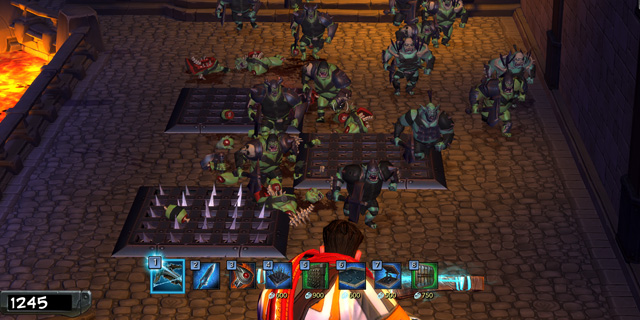
Orcs Must Die!: Instead of a good story, Orcs Must Die! is more about leaderboards and the pleasure of implementing the demise of hundreds of orcs. Even for someone who doesn’t like score-based games, Orcs Must Die! is enjoyable just for the sake of the playthrough, which takes about eight hours. If you really like competition or completion, there are separate boards for Nightmare difficulty, which is obtained by completing all levels on the basic difficulty level. (Full review)
The Elder Scrolls V: Skyrim: As you regain consciousness, you find yourself tied up in the back of a wagon traveling down a mountain trail. Looking around, you see other prisoners, bound and talking about a civil war. Upon reaching your destination of Helgen, each of you are declared traitors to the Empire and sentenced to death by beheading. As you approach the chopping block, a loud roar pierces the air. Just as you are about to be killed, a dragon appears and begins destroying the town. This is Skyrim, and only you can save it. (Full review)
Deus Ex: Human Revolution: Set 25 years before the events of the original, Human Revolution follows Adam Jensen, a security officer working for a corporation that specializes in augmentations. After a horrific attack on the company, Jensen is nearly killed but brought back to life thanks to some augmentation implants, making him just a little more than human. Jensen is out to discover who led the attack and what the ultimate purpose was behind it, leading to many interesting twists and turns along the way. (Full review)
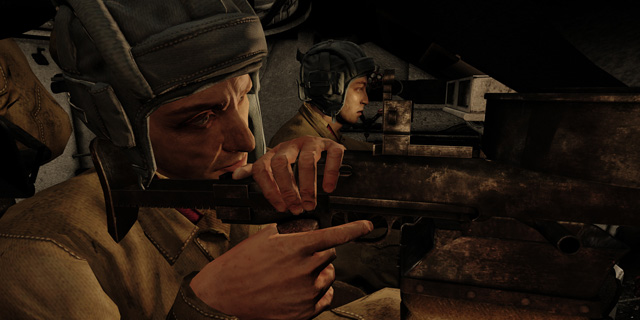
Red Orchestra 2: Heroes of Stalingrad: World War II shooters seem to have fallen out of style and AAA-budgeted, squad-based, console-port-friendly titles with marines both modern and future are still the rage right now. But for those who never wanted to go away from older weaponry, Red Orchestra 2: Heroes of Stalingrad fills a niche that has been unsatisified for quite some time. (Full review)
Might & Magic: Clash of Heroes HD: Clash of Heroes reminds me a lot of Othello’s tagline: “A minute to learn… A lifetime to master.” Clash of Heroes is deceptively simple, but the strategies possible when it comes to linking attacks (arranging to have several attacks fire off on the same turn which imparts a bonus on each of them), fusing attacks together (creating two attack formations of the same color in the same column, combining strength and firing at the earlier time), and strategically removing units from the field make for a great experience in both single player and multiplayer. (Full review)
Dungeon Defenders: We like tower defense games, but the formula is getting a bit stale these days. We also like multiplayer action-RPGs, but they’re all blurring into each other lately because nothing stands out. Why not mix the two, then? Developer Trendy Entertainment did just that with Dungeon Defenders, a hybrid game that, despite some peculiar elements, cures the ills of both genres. (Full review)



















